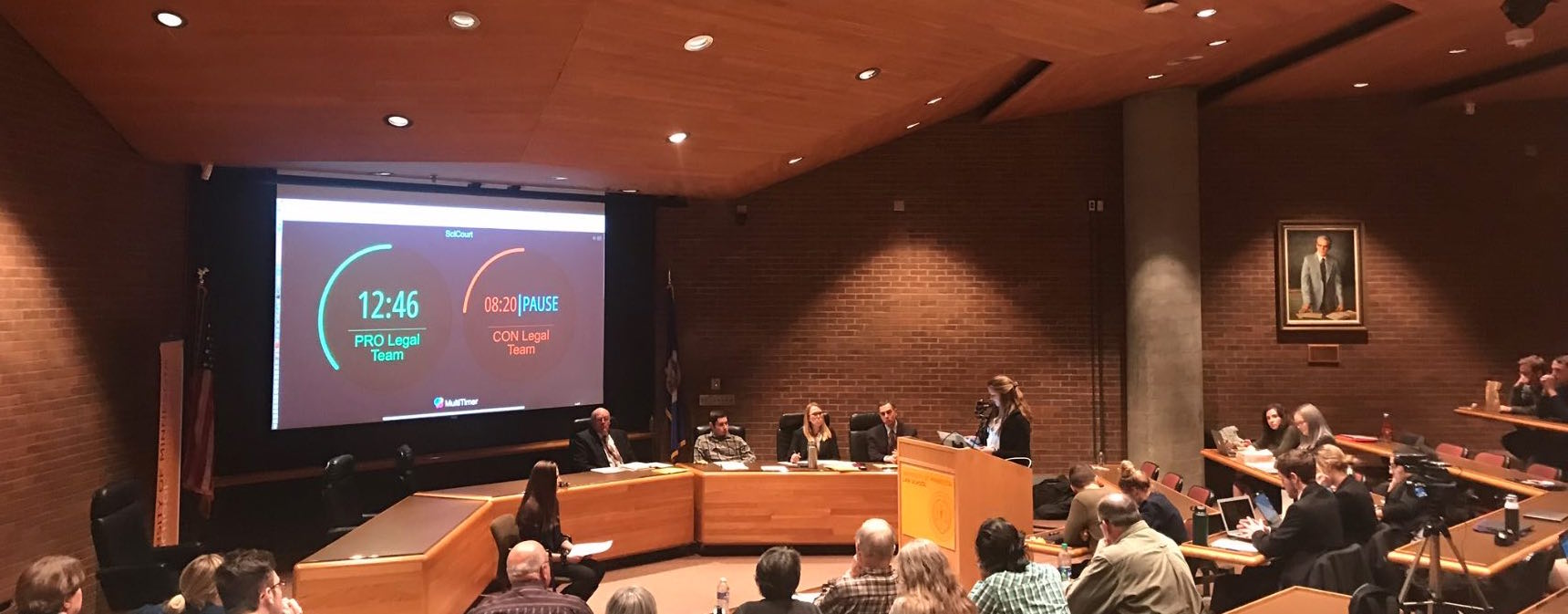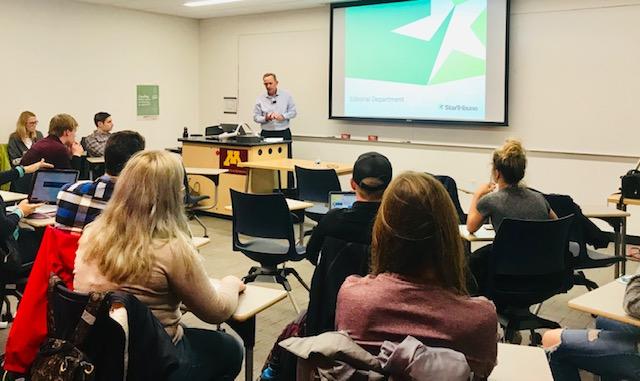
Welcome to Science Court!
Science Court is a project designed to combat polarization in American society and strengthen democracy. It is run as an interdisciplinary course in the University of Minnesota Honors Program involving students from across the university. The students select a controversial issue and spend an entire semester studying it in depth to determine the facts (based on sound scientific research) and then argue it in a mock trial in front of a jury of citizens with a mix of views and backgrounds. The public is engaged through compelling audio, video and online content generated by the students about the preparations, trial and verdict. The trial is free and open to the public.



The 2022 Science Court case is
Grading practices at the University of Minnesota can lead to bias, stress, and disincentivize learning, new innovative student assessment methods should be adopted
This year's Science Court is in partnership with the University of Minnesota (UMN) Student Senate. This topic is inspired by a Student Senate resolution, approved on December 3, 2020, requesting an extension of the UMN policy allowing students to opt for S/N grading (Satisfactory/Not satisfactory) in any course due to the COVID-19 pandemic. The Science Court case generalizes this to a full reevaluation of how students are assessed at UMN. This is timely considering increasing concerns regarding student mental health, the increased emphasis on student diversity and equity, changes in how students learn due to the technological environment, the increase in scholastic dishonesty facilitated by the internet and social media, and the rise of remote learning.
Science Court will consider student assessment holistically exploring what is known from scientific research in domains of knowledge informing this topic and propose two main strategies, Refine versus Reform, for the Student Senate to consider.
- The "Reform" (pro) approach proposes to replace the current UMN system with alternative methods for grading and student assessment proposed in the literature and tested at other institutions.
- The “Refine” (con) approach will argue to largely retain the current UMN grading system with modifications aimed at addressing its limitations based on research findings.
Stay tuned or follow us on twitter or join the Science Court mailing list to be kept informed.
LATEST BLOG POSTS
HOW A NEWSPAPER AND SciCOURT ARE THE SAME BUT DIFFERENT

Recently we got a little help from Scott Gillespie, the editor of the Opinion pages for the Minneapolis Star-Tribune. He took a break to come talk to us during one of the busiest times of the year for the Editorial Board as the newspaper is in the middle of interviewing all of the candidates running for office. Soon the Editorial Board will need to make their endorsements for the 2018 primaries. Some of the tidbits we learned from Scott are:
IT’S DOWN TO THE WIRE! WHICH CASE WILL WE PICK?
Today is the day we finally pick the very first SciCourt case!
Listen to Episode 3 of our Podcast "See who wins!" by Luke Diamond:
The finalists from last week are 1) drug price regulation and, 2) one-to-one technology for K-12 students in school. They are being put to the test by their teams today. Let’s see how they stack up.
Each team was given 20 minutes to present their case and a 10 minute discussion period. Unlike the last week’s presentations, the purpose of the presentations this week was not to prove that your case is superior, but to explain to the class whether or not the case would be a good fit for SciCourt. Remember, there are several key elements that make a good case for SciCourt.
Case Pitches
Science Court has officially begun! The students have been split into groups of two and each team has come up with a potential case to be tried in SciCourt.
Listen to Episode 2 of our Podcast "Case Pitches!" by Luke Diamond:
Case topics include:
- privatized prisons
- immigration laws
- mandatory recycling
- online behavioral targeting
- direct to consumer advertising of pharmaceutical drugs
- ceasing subsidies for nonrenewable resources
- sanctuary cities
- regulation of drug prices
- technology in K-12 schools
In total there were nine potential case ideas, but only two will make it to the final round!